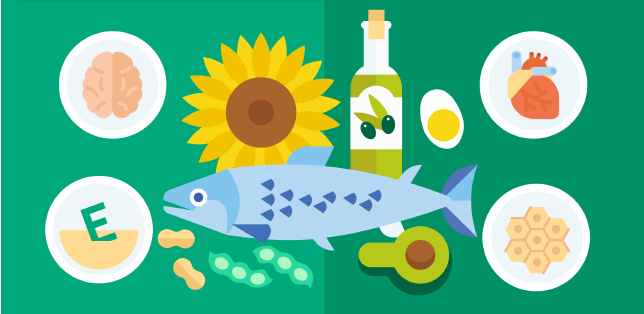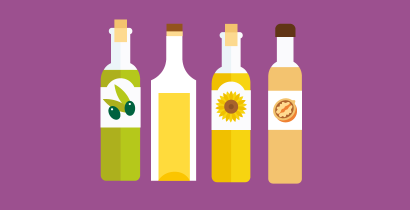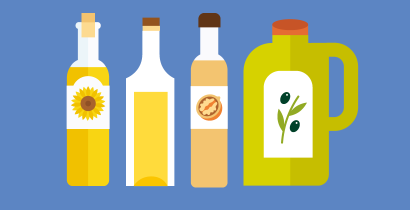Dietary fats

Fats are important for good health and proper functioning of the body. They are an important source of energy, they enhance the absorption of fat soluble vitamins, and build all our cell membranes. Our brains are mainly made of fats.
A balanced intake of fats is important, as too little or too much, or the wrong type of fat, may negatively affect our health. Adults should get a recommended 20-35% of their energy intake from fat. Less than 10% should come from saturated fat, and trans-fats should be avoided.
Olive oil: How is it produced? (Infographic)
01 October 2025From pressing to refining, see how olive oil is produced through all the various stages.
The importance of omega-3 and omega-6 fatty acids
27 March 2019The beneficial effects of consuming omega-3 fatty acids are well publicised, but omega-6 fatty acids feature far less in the news. So what are fatty acids and why is it important that we get the balance right?
Facts about Fats
22 September 2015Fats are important for good health and proper functioning of the body. They are a source of energy, essential fats and enhance the absorption of fat soluble vitamins. However, too much fat and/or the wrong type of fat may negatively affect our health.
The Functions of Fats in the Body
13 February 2015This review is dedicated to the current advances in nutrition science on the relation between dietary fat consumption and health outcomes, including obesity and cardiovascular disease.
Functions, Classification And Characteristics Of Fats
25 March 2014What are dietary fats? Read about the classification of fats, their different characteristics, and functions in both, the body and food technology.
How to choose your culinary oil
12 February 2014There is an increasing variety of vegetable oils for cooking and food preparation. How do you decide which one to use? Considerations include taste, functional properties of the oil, cost, and the health impact...
Omega-3 fatty acids: where to find them?
03 July 2003Although no single food alone can make a person healthy, eating more fish is one way that most of us can help improve our diets—and our health. Many of the studies about beneficial omega-3 fatty acids focus on fish as the primary source. Salmon, sardines, tuna and even shellfish are rich in omega-3 fatty acid content, but increasing your consumption of all types of fish and seafood is recommended.







